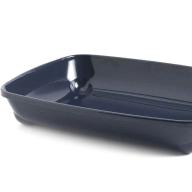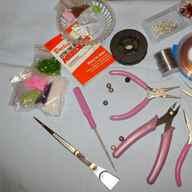The child spits up after feeding, suffers from gas, gains a lot, behaves restlessly. In this case, the old school pediatrician may recommend applying the baby less often to the breast or not letting him eat milk for a long time. But is it possible to overfeed breast milk actually?
The mother-to-child relationship is perfect. The baby independently regulates its rate. He can suckle intensively to provide himself with plenty of nutrition or use it only as a way to calm down or sleep, extracting crumbs of foremilk. Therefore, it is impossible to say exactly how much the baby ate at a given time.
To determine the size of what was eaten, experienced mothers and doctors from the children's clinic advise weighing the baby before and after feeding, but this does not make much sense. The fat content of milk is constantly changing, so the data on the portion size cannot be informative.
Pediatricians are still looking at the weight gained in a month. Many of them believe that if the baby has gained more than a kilogram, then he overeats breast milk. But WHO claims that a newborn in the first months of its development can gain from 500 g to 2 kg. A small child often grows more intensively and recruits more of his peers. Gradually, the weight gain decreases by itself. Chubby children often have a "shortage".
A child on breastfeeding:
- determines the portion size himself;
- regulates the number and duration of applications;
- uses the breast to satisfy not only hunger, but also thirst.
- Sometimes it is applied to the chest just to calm down.
Girlfriends, grandmothers or advisers from the Internet should not decide for the child how much and when he has... Doctors may recommend reducing the number of attachments in exceptional cases: if the baby is only after resuscitation, if he is preparing for surgery or is going through the postoperative period.
Common myths
Mothers believe that if a child spits up and gains a lot, then they overfeed him. They begin to give the baby a dummy, solder it with water and introduce non-nutritious food into complementary foods: boiled vegetables, baby curd. But this only makes the problem worse.
All the myths about overfeeding have gone back to the days when most mothers fed babies from bottles. With such a diet, the baby is unable to control the flow rate of milk and swallows air. As a result, regurgitation and pain appear.
You can overfeed your baby with a mixture. Breast milk contains ingredients that aid in digestion.
Regurgitation
If the baby spits up after feeding 1-2 tablespoons, then this is considered the norm. So nature takes care that the baby does not overeat. Profuse regurgitation indicates the following problems:
- The kid swallows air. This is due to improper attachment. Mom should adjust the nipple grip on her own or seek the help of a counselor.
- Problems in the structure of the digestive system. Regurgitation occurs due to the immaturity of the gastroesophageal sphincter.
By six months, the unpleasant process passes. But severe regurgitation is a reason to contact a qualified doctor.
Increased gas production
Colic clears up 70% of newborns. Artificial people encounter flatulence more often and endure it more difficult.
If the baby is breastfed, then the problem may not cause proper nutrition mother. A nursing woman needs to exclude the following foods from the diet:
- legumes;
- black bread;
- cucumbers and cabbage;
- prunes.
A kid who is too restless and refuses to eat should be seen by a doctor. The doctor will prescribe a bacteriological culture of milk and feces to determine the number of beneficial and harmful microorganisms.
Big increase
The scales in the medical office showed an increase of more than a kilogram, and the doctor begins to talk about a possible overfeeding. In fact, a 2 kg gain is considered normal.
In the first six months, the child hangs a lot on the chest and moves little, so his weight is growing rapidly. Then the baby begins to crawl actively, and the breast ceases to occupy the main place in his life. The toddler eats less, moves more, and the weight gain decreases.
Can a baby eat a lot
Sometimes the child eats more than usual. This happens when he is too agitated and actively suckles to rest.
In some cases, the baby is too lazy to suck out the back milk, which is more fatty and nutritious. He begins to demand another breast and, in an attempt to fill himself, eats more milk than his stomach can hold.
Heartburn also causes overeating. It causes discomfort and the baby begins to eat more to take it off. But this only makes the problem worse.
The child grows in leaps and bounds. In the next growth spurt, he will require more milk and he will have to start giving a second breast until the mother's body is reorganized to the new needs of the baby.
To avoid overeating, follow the correct attachment, try to change the breast every feeding, soothe the baby not only with milk, but also with soft strokes.
Overfeeding is possible only with a mixture. Breast milk is a unique product that adapts to the needs of the newborn. The child can control the frequency of attachments and the size of his portion himself. The mother should only monitor the correct grip of the nipple and give access to food at the request of her baby.
The issue of child nutrition worries every newly-made mom, because many are used to believing in the myth that the more the baby eats, the better.
Recently, experts have seriously started talking not only about the problem of obesity in children. preschool age, but also on the issue of overeating in newborns. This is what our article is about.
What causes overeating?
The most common misconception is that a baby cries because he is hungry. Experts strongly recommend not to breastfeed at the first sob, because there are many other reasons due to which.The second reason for overeating is the incorrect calculation of the amount of formula and milk required for the baby. On this issue, you should consult with a specialist and understand that the amount of the mixture offered to the baby should correspond to his age, height and take into account whether he is still receiving breast milk or not.
Reasons for overeating
 Breast milk provides the baby with the necessary nutrients, helps to improve immunity and growth, so not many mothers think about overfeeding them, but this is so.
Breast milk provides the baby with the necessary nutrients, helps to improve immunity and growth, so not many mothers think about overfeeding them, but this is so. The baby is not always able to control his appetite and absorb as much liquid as he needs. This can happen:
- after childbirth,
- with hyperlactation,
- at.
What to do?
In the first case, hormones are to blame, striving to help the mother's body provide the baby with the right amount of a nutritious liquid product.In the second, the mother overdid her, who accelerated lactation with the help of expressing (a breast pump greatly facilitates and speeds up this procedure) or the frequent shifting of the baby from one breast to another during one feeding.
The third case is the most common. Since, as we said, moms are worried that their child may remain hungry and introduce complementary foods early, while I completely ignore the technology for making smears and the amount recommended for a certain age and body weight.
To prevent this from happening, you should fill in a few simple rules:
- You cannot make the mixture thicker than indicated in the instructions, reducing the volume of water in which the special baby powder dissolves. This not only leads to rapid weight gain, but also harms the gastrointestinal tract.
- Do not introduce complementary foods too early (5 months is the most the best time). If you suspect that the baby is not enough milk, introduce him to green apples - this is ideal for a toddler who is still breastfeeding.
How do you know if a newborn is overeating / malnourishing?
 To understand that the baby does not have enough breast milk and he needs complementary foods, you can do a wet diaper test. If there are 12 or more of them during the day, it means that the child has enough of everything.
To understand that the baby does not have enough breast milk and he needs complementary foods, you can do a wet diaper test. If there are 12 or more of them during the day, it means that the child has enough of everything. 8 pieces indicate that there is some suspicion of a lack of food, but the decision to include the mixture in his diet should be discussed with the pediatrician, who will examine and weigh.
How to combine breastfeeding and porridge?
If the specialist confirmed that the child is not eating enough and recommended that cereals be included in his diet, breastfeeding should be started. When the little one sucks everything out of her, offer him porridge. In case he refuses - do not shove. If he asks - give just as much as required by the recipe.Remember that you are responsible for the health of the baby, so it is important to pay due attention to the issue. If you suspect that he lacks food or is gaining weight too quickly, consult a specialist. Your self-made decision to reduce the amount of portions or to introduce complementary foods can harm him.
And today, when everyone knows the basic principles healthy way life, many parents are sure that the more a newborn baby eats and gains weight, the better. But in fact, overeating and, as a result, overweight capable of causing harm even in the first months of life.
Each child grows and develops at its own pace. However, general figures fixing the norm still exist. As a rule, babies born weighing 3-4 kg double their body weight in the first six months of life. If the baby was born a real strong man, this indicator decreases, and the baby should increase the weight by 1.5 times. But absolutely crumbs weighing 2.5 kg or less can quickly gain momentum and become four times "thicker". Of course, we must not forget about individual characteristics. Thus, it is permissible for a boy to be larger than a girl. Bigger babies are also a "good reason" for actively gaining weight.
And yet, the schedule of infant growth is very conditional. To make sure that your baby is developing in accordance with the norm, you should not miss scheduled checkups with a pediatrician. An experienced doctor, comparing the data, will immediately notice deviations and give advice on diet. Indeed, in addition to height and weight, it takes into account the ratio of the circumference of the head and chest, general state health.
Is it worth worrying if the kid has typed excess weight? Most pediatricians are sure that temporary excess weight is not particularly terrible, but if the situation does not change for many months, it can lead to obesity and even diabetes mellitus... The main reason for this "bust" in infants is not original - overeating.
It seems to many that only children overeat artificial nutrition... But this is a myth. Breastfeeding mothers often overfeed their babies themselves, putting them to the breast in response to every cry, that is, every half hour. Whereas the child needs at least an hour to empty the stomach from the previous portion. Accordingly, an excess of protein obtained with milk affects weight gain.
The good news for breastfed babies is that this problem is easy to fix. It is enough just to slightly increase the time between meals. Ideally, up to an hour and a half.
 With artificial children, everything is somewhat more complicated. When feeding from a bottle, a baby does not have to "work": it is much easier to eat from the nipple than from the breast. The flow from the nipple comes on its own and is usually very fast. In such conditions, the baby can easily eat more than he really needs. To prevent this from happening, you must carefully choose the feeding bottles, or rather, the nipples for them.
With artificial children, everything is somewhat more complicated. When feeding from a bottle, a baby does not have to "work": it is much easier to eat from the nipple than from the breast. The flow from the nipple comes on its own and is usually very fast. In such conditions, the baby can easily eat more than he really needs. To prevent this from happening, you must carefully choose the feeding bottles, or rather, the nipples for them.
For example, Philips AVENT has bottles and nipples that work in breastfeeding mode due to a special built-in valve: it allows you to control milk flow and can help to reduce the frequency of overeating and regurgitation. During feeding, the outer part of the Philips AVENT teat forms a curve that allows air to enter the inside of the bottle, thereby preventing a vacuum inside the bottle. Therefore, the flow of the mixture flows evenly, and the baby does not have to tear himself away from the nipple due to the fact that it is stuck together. The very same shape of the nipple is physiological, that is, it repeats the shape of the female nipple, due to which the baby makes the same movements and efforts as during breastfeeding. This is especially important if the baby is on mixed feeding, as it reduces the risk that he will give up breast in favor of a bottle.
The Philips AVENT bottle also helps to calm your baby in the evening and at night, as the one-piece valve system reduces the likelihood of occurrence because the baby does not swallow air. This action is clinically proven. A study by leading British experts found that 2-week-old babies fed with Philips AVENT bottles stayed awake for significantly longer than babies fed with regular bottles.
 If your baby is on formula or mixed feed, pay close attention to the interval between feeds. They should be larger than that of infants, and be about 2-3 hours, since it takes more time to digest the mixture, it takes longer to digest breast milk. It is important to prepare the mixture strictly according to the instructions. Here, not only the temperature of the water matters, but also its quantity. A thicker mixture will take longer to digest.
If your baby is on formula or mixed feed, pay close attention to the interval between feeds. They should be larger than that of infants, and be about 2-3 hours, since it takes more time to digest the mixture, it takes longer to digest breast milk. It is important to prepare the mixture strictly according to the instructions. Here, not only the temperature of the water matters, but also its quantity. A thicker mixture will take longer to digest.
Among representatives of the older generation and experienced pediatricians, there is an opinion that a child, being breastfed, can transmit. Often such arguments are based on the fact that if a child transmits, he injures his fragile stomach. In most cases, such judgments are based on an elementary ignorance of the difference between feeding an artificial child and a child who is on GW, and these are two completely different mechanisms.
An Artificial Can Really Overeat
A small child cannot regulate the process of saturation with a mixture, since this food is unnatural for him. For this reason, all responsibility for correct feeding lies on the shoulders of mommy. Any substitutes, even the most expensive ones, are not breast milk, so it is important to strictly adhere to the dosage. Feeding crumbs with a formula can cause a lot of unwanted problems, most of which are related to the gastrointestinal tract. It takes a child about 2 times longer to digest the formula than it takes to digest mother's milk, so the breaks between feeds should be long enough.
Don't limit the kid
When a baby consumes exclusively breast milk, the body itself regulates the satiety process. Since birth, the baby has "studied" well the milk that comes from the mother's breast, so he knows how much it is needed. It is very important not to give your baby the feeling of not having enough milk. The child can eat a little too much, but everything that he has eaten will certainly vomit.
Mother's milk is of particular value to the baby, it is interesting that its composition changes depending on the age of the baby. He is not only saturated with breast milk. The baby suckles to relieve any pain, soothe, or just to sleep. Therefore, the newborn must be very often applied to the breast. The composition of mother's milk is easily and quickly absorbed by the body. This is what is needed for the tiny ventricle, which hardly has to work to digest its natural food. From the stomach, milk very quickly enters the intestines, where it is easily absorbed by its walls.
Nature took into account the fact that at night the baby's body must rest from digesting too fatty food, therefore, in the process of night feeding, completely low-fat milk is produced.
Myths are debunked, and conclusions can be drawn. A slight overeating while breastfeeding is possible, but the child's body is able to regulate this process itself, the unnecessary and unnecessary will simply spit up. The situation is worse with children who are on artificial feeding, in this case, strict control is required to avoid serious health problems in the baby.
What does “overeating of newborns” mean? Many mothers ask this question, because it is widely believed that the more a newborn eats and the more he gains weight, the better. However, this is not always the case.
It's no secret that the best food for newborns is mother's milk. But, unfortunately, not all mothers are able to breastfeed. They are helped by mixtures adapted to the age of the baby and its physiological characteristics.
So how do you know if your newborn is overeating? It's simple. The easiest way is to regurgitate. If the child begins to spit up profusely after eating, it means that he overeat, and the body thus got rid of excess amounts of food. The second way is a big weight gain. If there is a special scale at home, then it is easy to control, the child should add from 30 to 120 grams per day. If not, then it is more difficult, you have to control your weight once a month when you visit a pediatrician at a clinic. In the first month, the newborn should add from 600 grams to 1,500 kg. Weight is highly dependent on the type of feeding. Big gains in weight are "allowed" to babies, everything should be accurate and clear for "artificial" ones.

If the problem of overeating in newborns affected you, it is enough to follow a few tips. For children growing on artificial feeding, there is a specific feeding schedule - every 3-3.5 hours. It is not recommended to feed earlier than the matured time. The mixture should be given a certain amount - how much, you will find in the instructions on its packaging. Do not exceed the indicated volumes!
Overeating in newborns can cause further problems with complementary feeding! Therefore, try not to run this situation and follow the rules and recommendations of the pediatrician.
After the birth of a baby, young mothers want to return to their previous clothing size. But this is sometimes a very difficult mission ....
It is no secret that proper nutrition of schoolchildren is the key to their success in studies and any other endeavors. Indeed, at this age, the child's body is most susceptible to any information, which means that he ...
Many people, out of fear or grief, start to eat a lot. Since at the birth of a child, mother and baby are connected by feeding and during the period of growing up, the mother continues to feed him ...
It's no secret that many people want to lose weight. In most cases it succeeds ....
Divorce is a situation that leaves an unpleasant aftertaste in the life of every person. Whatever it was, but, basically, both are to blame for the divorce. Even if one side has cheated, it means that the other side has ...
The best nutrition for a newborn is breast milk. Apparently, this is not only a matter of its nutritional value, that is, in the content (fats, carbohydrates, vitamins and minerals), but also in others ...
It is often very necessary to get yourself in order in a matter of weeks, and sometimes days. To achieve the result as soon as possible, you have to look for more and more new effective methodsthan before ....
With the advent of a child, the life of any woman changes dramatically. Appears new meaning life and every mother devotes herself without reserve to her child. And as a result of the fact that self-care is not ...




